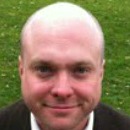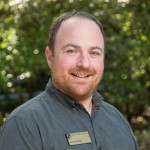Page 27 • (4,057 results in 0.041 seconds)
-
Speaker: Dr. Michelle M. Jacob, PhD, is a Professor of Indigenous Studies and Director of the Sapsik’ʷałá (Teacher) Education Program in the Department of Education Studies at University of
“Indigenous Environmentalism as Spiritual Responsibility: Journeys of Activism and Healing with Saint Kateri Tekakwitha” Dr. Michelle M. Jacob, PhD, is a Professor of Indigenous Studies and Director of the Sapsik’ʷałá (Teacher) Education Program in the Department of Education Studies at University of Oregon. 7:00 pm | Tuesday, Feb 20 | Scandinavian Cultural Center Free and Open to the Public The PLU Religion Department welcomes you to the Paul O. Ingram lecture at 7p.m. Tuesday, February 20th
-
“Doesn’t the world need good schools and educated persons?” With this simple question, Martin Luther urged the leaders of his nation to establish public schools for children and reshape the
questioning, the preparation of citizens in service to the world, and its own ongoing reform. They express and support what rightly rests at the center of personal and national life: a vibrant intellectual tradition committed to asking significant questions. 1. Critical questioning of current knowledge and values Early in his academic career, Martin Luther gained a reputation for questioning the economic, educational, political, religious, and social norms which many of his peers took for granted. Such
-
Sounds of Christmas with a Reformation choral work performed by University Singers and Men’s Chorus and directed by Associated Director of Choral Studies Brian Galante.
? Critical Race Theory and the (De)Construction of the PLU Narrative Dr. John Nunes, the newly elected president of Concordia College in New York City and the first African-American to serve as president of a Lutheran college in the western hemisphere, will give the keynote address, When Grace Meets Race: One Lutheran’s View of Racial Justice. The conference is free and open to the public. Go to the conference website for the complete schedule, presentation descriptions and speaker biographies.October
-

Associate Professor of Philosophy | Innovation Studies | schleemt@plu.edu | 253-535-7218 | Mike Schleeter began teaching as an Assistant Professor at PLU in 2011, having received a B.A.
philosophy, and business ethics, as well as courses in early modern philosophy, 19th and 20th century continental philosophy, and the philosophy of race. His areas of scholarly interest include political philosophy, political economy, German Idealism, and phenomenology. In his free time, he enjoys watching films, playing music, reading literature and poetry, studying history and politics, and sampling beers from around the world. Interests Watching Films Playing Music Reading Literature and Poetry
-

Associate Professor of Communication | Communication, Media & Design Arts | justin.eckstein@plu.edu | 253-535-8175 | Dr.
food and rhetorical production (Editor) (Birmingham: University of Alabama Press 2020) : View Book Selected Articles Eckstein, J. "The (Parkland) kids are alright." Communication and the Public Vol. 5, 2020: 26-34. Eckstein, J. "Sensing school shootings." Critical Studies in Media Communication Vol. 37, 2020: 161-173. Eckstein, J. & Young, A. "WastED rhetoric." Communication and Critical/Cultural Studies Vol. 15, 2018: 274-91. Eckstein, J. "The acoustics of argumentation and advocacy
-
Check out these opportunities for engagement and community over the summer! Registration is LIVE for all summer activities!
Diversity Center Alumni The Diversity Center is committed to providing alumni with insight into diversity and inclusion initiatives, challenges, and successes on campus. We also strive to create space for alumni to (re)connect with each other, The Diversity Center, and the university. Whether or not you were a student when the dCenter was established, our values of critical reflection, perspective taking and community resonate with a wide range of alumni who believe in our mission. Please
-
So, … what can you do with an English major? Endless possibilities await! Proficiency in critical and creative reading and writing is crucial in today’s information-driven economy. An English major will equip you for any path that demands, effective communication, appreciation of diversity, and creative…
Major Minute: English Posted by: mhines / April 25, 2024 April 25, 2024 So, … what can you do with an English major?Endless possibilities await! Proficiency in critical and creative reading and writing is crucial in today’s information-driven economy. An English major will equip you for any path that demands, effective communication, appreciation of diversity, and creative expression. Watch this Major Minute featuring Chair and Professor of English Jim Albrecht to explore PLU’s English program
-
A liberal arts education grounded in critical thinking enables our students to be actively engaged on campus & in our greater community.
Contact Phone: (253) 535-8724 Text Only: (253) 527-6401 Email: bruanbj@plu.edu Director of Admission
-
Demonstrate critical reading and writing skills that show proficiency in analyzing the thematic and formal elements that constitute a literary text.
MFA Learning OutcomesDemonstrate critical reading and writing skills that show proficiency in analyzing the thematic and formal elements that constitute a literary text. This includes a sophisticated understanding of how a text is made, along with an understanding of the content that animates strong pieces of creative writing. Demonstrate knowledge of the genre conventions and craft elements for the student’s genre of focus, whether creative nonfiction, fiction, or poetry. This will include a
-
A yearlong sabbatical in 2017-18 provided Dr. Brenda Llewellyn Ihssen, Dr. Michael Schleeter, and Dr. Seth Dowland with opportunities to rethink their courses and pursue scholarly interests.
some of his course material. He hopes that his reflection and time away from teaching will help his students unpack the intersections of race and gender, examine ideologies, and expand their awareness of the ways that race, gender, and religious identities are interdependent. Dr. Dowland’s goals in teaching religion include helping students to develop critical empathy and to see the world from different points of view through different ways of thinking. His sabbatical allowed him to discover
Do you have any feedback for us? If so, feel free to use our Feedback Form.


